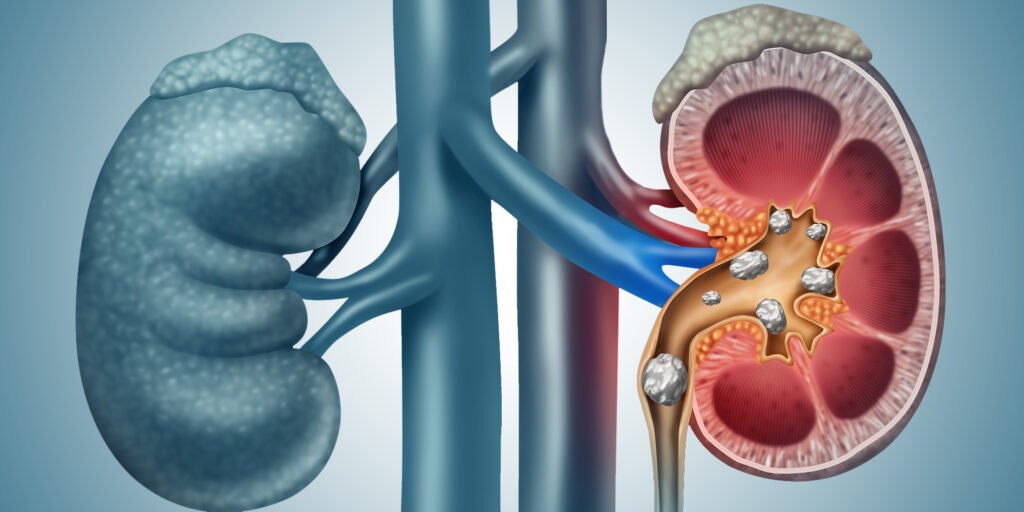Kidney stones are a common and painful health issue that affects millions of people worldwide. These hard deposits of minerals and salts can develop in the kidneys, leading to severe pain and potential complications if not addressed. While treatment options are available, prevention is always better than cure. Fortunately, there are several steps you can take to reduce the risk of kidney stones forming in the first place.
1. Stay Hydrated
One of the simplest and most effective ways to prevent kidney stones is to drink plenty of water. Dehydration can lead to a higher concentration of minerals in the urine, which can crystallize and form stones. Aim for at least 8-10 glasses of water daily. If you live in a hot climate or exercise regularly, you may need to drink even more to stay hydrated. Keeping your urine light and clear is a good indicator that you’re drinking enough water.
2. Eat a Balanced Diet
Your diet plays a significant role in kidney stone prevention. Foods high in oxalates, such as spinach, beets, nuts, and chocolate, can increase the risk of stone formation, especially when consumed in large quantities. Moderation is key. Additionally, limit your intake of salt and animal protein, as these can increase the risk of certain types of stones. Instead, focus on a balanced diet rich in fruits, vegetables, and whole grains.
3. Monitor Your Calcium Intake
Calcium is often misunderstood in relation to kidney stones. While calcium stones are the most common type, reducing your calcium intake is not necessarily the solution. In fact, consuming the right amount of calcium can help prevent stones by binding with oxalates in the intestines, preventing them from reaching the kidneys. It’s important to get calcium from food sources like dairy products, rather than supplements unless advised otherwise by your doctor.
4. Avoid Sugary Drinks and Excessive Sodium
Sugary beverages, particularly those high in fructose like soda, can increase the risk of kidney stones. Additionally, consuming too much sodium can lead to higher calcium levels in the urine, contributing to stone formation. Reduce your intake of these drinks and opt for healthier alternatives like water or herbal teas. Also, keep an eye on processed foods, which often contain high levels of sodium.
5. Stay Active
Regular physical activity can also play a role in preventing kidney stones. Exercise helps regulate your body’s metabolism and reduces the likelihood of obesity, a risk factor for kidney stones. Aim for at least 30 minutes of moderate exercise most days of the week. However, avoid excessive exercise without proper hydration, as this can lead to dehydration, increasing your risk.
6. Know Your Family History
If kidney stones run in your family, you may be at a higher risk of developing them. Being aware of your family history can help you take preventive measures more seriously. Discuss your risk factors with your healthcare provider, who can recommend additional strategies tailored to your needs.
7. Regular Medical Checkups
Regular checkups with your healthcare provider can help monitor your kidney health. If you’ve had kidney stones before or are at high risk, your doctor may suggest periodic urine tests to check for abnormalities or recommend specific medications to prevent stone formation.
Conclusion
Preventing kidney stones before they form is possible with a proactive approach to your health. By staying hydrated, eating a balanced diet, monitoring your calcium intake, and maintaining a healthy lifestyle, you can significantly reduce your risk. Remember, prevention is always better than dealing with the pain and complications of kidney stones. Take these steps to protect your kidney health and enjoy a life free from the discomfort of kidney stones.

